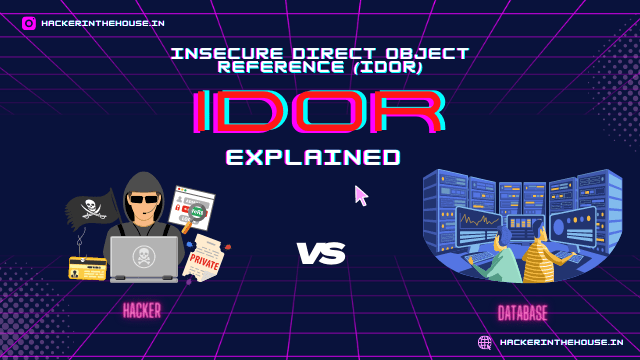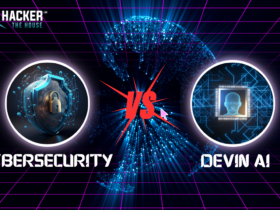In the world of online communication, imagine that you’re sharing a confidential message. To safeguard its contents, cryptography comes into play. Cryptography employs a unique key to convert your message into a jumbled code, decipherable simply by the individual possessing the correct key.
So, if someone tries to listen to your message while it’s being sent, all they’ll see is a jumble of letters and numbers. Cryptography is like a secret code for digital stuff, designed to keep messages and information safe from people who shouldn’t see them.
Besides, Cryptography encompasses using mathematical algorithms and principles to metamorphose plain, easily readable data known as plaintext into an enigmatic format referred to as ciphertext. This conversion procedure, turning plaintext into ciphertext, is recognized as “Encryption,” whereas the converse procedure is acknowledged as “Decryption.”
Why do we need Cryptography?
However, Cryptography is a fundamental tool that plays a crucial role in ensuring the security and privacy of various aspects of digital communication, data protection, and online interactions. As well as its significance stems from the need to safeguard online chats, emails, payments, and personal information from hackers, cyber thieves, and snoops
- Privacy: Cryptography preserves privacy by keeping sensitive information confidential.
- Security: It enhances security by protecting data from unauthorized access and tampering.
- Authentication: Especially, Cryptography verifies user identities, ensuring trust in digital interactions.
- Integrity: It ensures data remains unchanged during transmission or storage.
- Financial Transactions: It secures online payments and banking transactions.
- Communication: Indeed, Cryptography safeguards email, messaging, and VoIP calls from eavesdropping.
- Legal Validation: Digital signatures prove the authenticity of digital documents.
- Password Protection: It stores passwords securely, reducing the risk of breaches.
- Access Control: Cryptography restricts access to authorized personnel.
- IoT and Blockchain: It underpins security in IoT and blockchain technologies.
- National Security: Also, Governments use it for secure communications and intelligence.
- Medical Records: It protects electronic health records for patient privacy.
- Data Breach Mitigation: Encrypted data limits the impact of breaches.
- Regulatory Compliance: Moreover, Cryptography helps organizations meet data protection regulations.
Keys Used in Cryptography
Keys, a foundational element in cryptography, govern the encryption and decryption processes.
Symmetric keys: Involve the use of the same key for both encryption and decryption,
Asymmetric keys: On the other hand, it utilizes a pair of keys: a public key for encryption and a private key for decryption.
Cryptographic Algorithms
Cryptography relies on various algorithms to secure data, Some of the most commonly used cryptographic algorithms, include:
- AES (Advanced Encryption Standard): The widely adopted symmetric encryption algorithm used to protect data in various applications.
- RSA: The cornerstone of asymmetric encryption, RSA is instrumental in secure communication and digital signatures.
- SHA-256: A cryptographic hash function that plays a crucial role in data integrity and blockchain technology.
Example:
Imagine you want to send the word “SECRET” to your friend. Instead of sending it as is, you shift each letter one position forward in the alphabet. So, “S” becomes “T,” “E” becomes “F,” and so on. Now, you send “TFDSFU” to your friend. They know the shift, so they shift the letters back, and the message becomes “SECRET” again. This way, only your friends can read the message because they know the secret shift.
Who can utilize Cryptography?
- Individuals use cryptography for online communication and personal information security.
- Businesses employ cryptography to protect data, customer information, and financial records.
- Governments and the military rely on cryptography for classified information and national security.
- The healthcare sector uses cryptography for patient privacy and regulatory compliance.
- Financial institutions secure online transactions and data with cryptography.
- Online services and social media platforms use encryption to protect user data.
- The IoT industry employs cryptography to secure communication between connected devices.
perks:
- Keeps Secrets Safe: Indeed, Cryptography locks up our messages and data, so only the right people can understand them.
- Protects Privacy: It keeps our personal stuff, like emails and chats, hidden from others who shouldn’t see them.
- Secure Transactions: Furthermore, Cryptography makes online payments and transactions safer, so hackers can’t steal our money.
- Prevents Tampering: It stops attackers from changing our information without us knowing.
- Trustworthy Communication: Cryptography helps us trust that the messages and emails we get are really from the people they say they are.
- Secures Data Everywhere: From our devices to the Internet, cryptography helps keep our data safe wherever it goes.
Ultimately, Cryptography is like a digital superhero that quietly protects our online messages, payments, and secrets. It’s always changing to stay ahead of the bad guys. Whether you’re into tech or just curious about how to keep your online stuff safe, learning about cryptography is a smart move. It’s like getting your own superpower to protect your digital world.











Leave a Reply